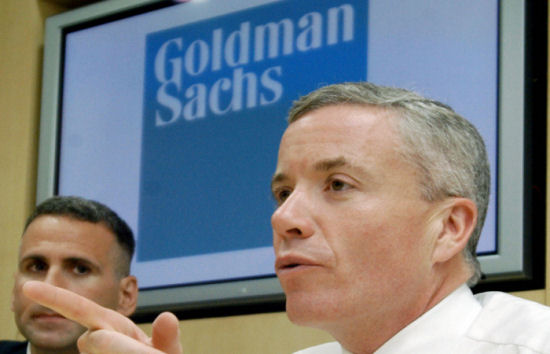Goldman Sachs' China deal rejected
Updated: 2007-11-12 11:12
 The past four months in China have not been pleasant for Goldman Sachs - all because of the bull stock market that has more than doubled since January, despite last week's downturn.
The past four months in China have not been pleasant for Goldman Sachs - all because of the bull stock market that has more than doubled since January, despite last week's downturn.
The China Securities Regulatory Commission (CSRC) last week rejected Goldman's bid to buy a 10 percent stake in a Shanghai-listed glassmaker Fuyao Group.
|
|||
The deal was approved by Ministry of Commerce in August.
The CSRC's rejection, analysts say, most likely came because the original offer is now less than one-third of the current share price.
It was the second snub for Goldman from the CSRC in four months. In August, the CSRC turned down a bid by Goldman to buy a 10.7 percent stake in Midea, one of China's top home appliance makers, for about US$96 million.
They are just the latest foreign acquisition deals to be derailed by the bull run on China's stock market, which has pushed share prices far beyond the levels foreign buyers originally agreed to pay.
Fuyao's share price tripled during the review process and Midea's shares rose more than fivefold during the regulatory examination.
"The original offer prices are too cheap," says Zhang Xin, an analyst at Guotai Junan Securities. "If the deal were approved, it may upset shareholders, and that is what the regulators are concerned about."
GE recently scrapped its proposed purchase of Shenzhen Development Bank due to sharply increased share prices of the commercial bank.
Foreign mergers and acquisitions of China's listed companies have also slowed this year partly as a result of tighter rules.
Yet another Goldman deal, to buy 12 percent of Chengdu Yangzhiguang Industrial Co for 239.4 million yuan, is now pending regulatory approval. The toolmaker is trading at more than seven times the 3.99 yuan per share offer price.
Daimler AG agreed to buy 24 percent of Beiqi Foton Motor Co for 816.8 million yuan, or 2.75 yuan a share, in November last year. The Chinese truck maker is now trading at more than four times that price.
"Chinese public companies' P/E (price-to-earnings) ratios are much higher than in more mature markets and makes it difficult for foreign investors to close the deals," says Zhao Liang, director of the transactions strategy team at PricewaterhouseCoopers (PwC).
"Incoming merger and acquisition activity is likely to grow more slowly until valuation expectations, which have been pushed upward by the roaring stock market, subside," says Gabriel Wong, a corporate finance partner of PwC.
|
|


